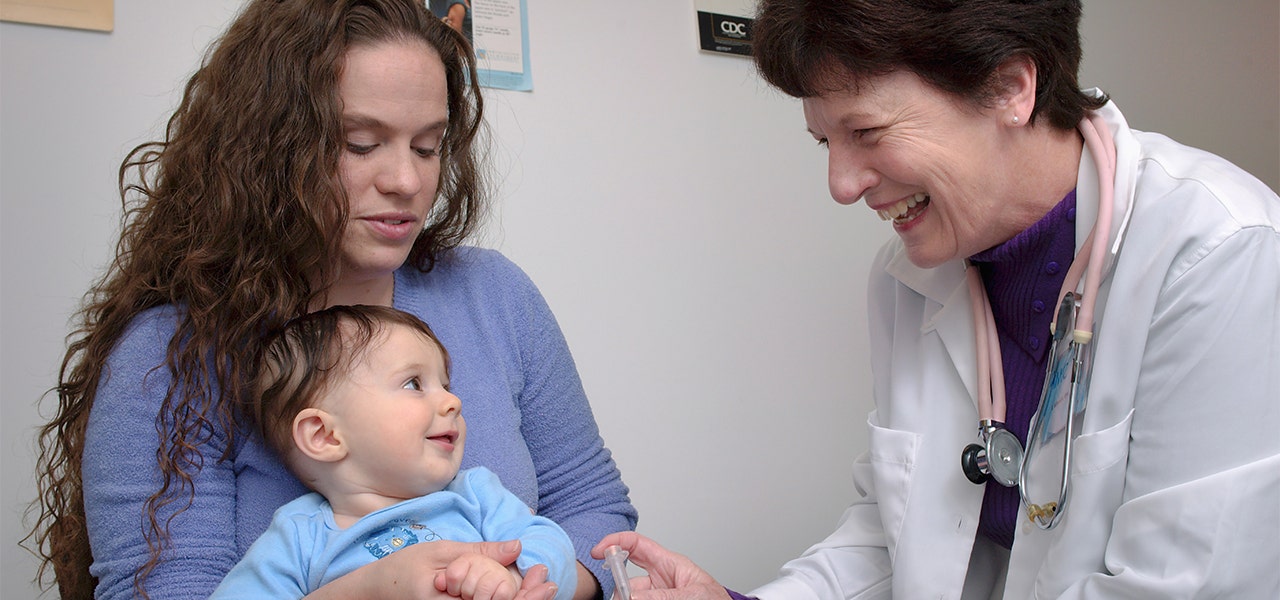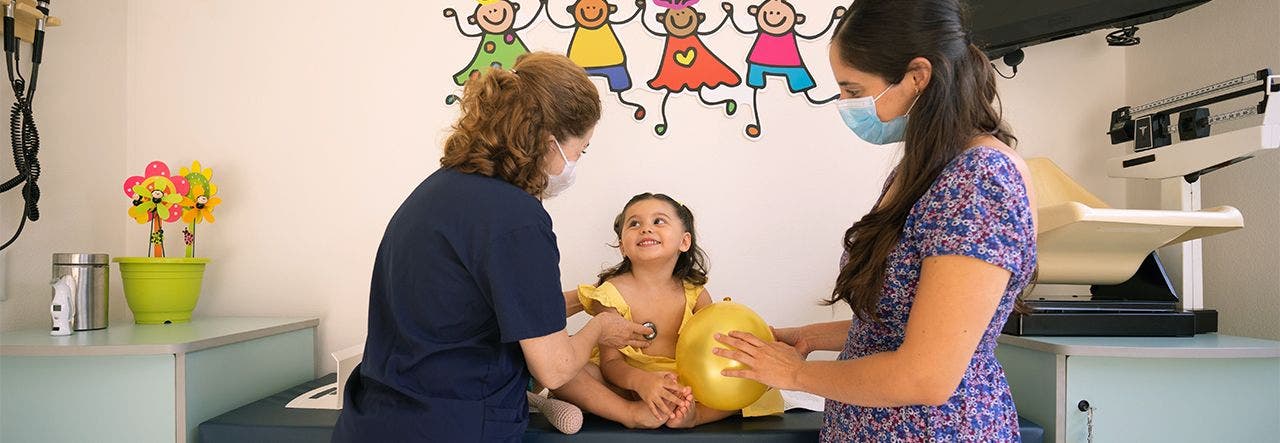Summer is a common time for school-aged kids and teens to have their annual check-up. This month, Dr. Arthur Lavin, board-certified pediatrician, explains it all! Hear more from Dr. Lavin on the ParentTalk Podcast.
This summer, millions of children and adolescents across the nation will visit their pediatrician to complete their annual check-up, a process required by every camp, school and school sports program.
The annual check-up is familiar territory for parents of school-aged kids. But, have you considered the benefits beyond the requirement? How can you approach this summer’s annual check-up to make sure that you and your child are getting the best care and attention?
While this may seem like just another item to check off of your endless to-do list, visiting the pediatrician when your child is healthy is actually an excellent opportunity to ask questions, express concerns and better understand your kiddo’s health and immune system. Let’s discuss.
What Is a Wellness Check-up?


Your pediatrician’s office may refer to this visit as a health supervision visit, wellness visit, well-child care, health supervision and evaluation visit, annual physical, sports physical, etc. These are all essentially the same thing: a preventive visit to detect health issues before they cause problems. Starting at the age of three, it’s recommended that kids have a check-up once a year. From birth to three years of age, the times to come in for a check up are:
- Newborn
- 3-5 days old
- 1 month old
- 2, 4, 6, 9, 12, 15, 18, 24 and 30 months old
At all ages, the wellness visit is designed to evaluate your child’s health status by conducting screening tests and to prevent troubles for a child who may appear perfectly well.
Understanding Screening Test Protocols
One of the best all-time screening programs is the screen for a newborn metabolic illness called phenylketonuria (PKU). In PKU, the body cannot handle a particular amino acid called phenylalanine. If you eat it, it accumulates, causing terrible brain damage. But, if you catch it within a few weeks of birth, then you just avoid eating phenylalanine – and no harm occurs at all. The PKU test performs exceptionally well. If the test is normal, then you do not have PKU. If it is positive, then you have PKU.
If the doctor asks to see you when you feel fine, they better have good evidence that seeing them when you feel fine makes you healthier! The PKU screen does just that, but not all screens do. In order for a screening program to deliver benefit:
- The problem must matter. There’s no use screening for a problem whose elimination would not matter.
- Timing is everything. It must be demonstrated that finding the problem early changes the outcome.
- The screening test must perform well. Imagine a screening test where everyone with the problem and everyone without the problem gets the same result – that would render the test useless.
- The screening must lead to an effective intervention. Why find a problem if there is no response to help prevent or lessen its impact?
- The intervention must be available. A screening program only makes sense if patients have access to the intervention.
What Does an Annual Check-up Screen for?
The American Academy of Pediatrics (AAP) has devoted enormous resources to determining what issues really do benefit from screening, including the criteria listed in the section above.
Those decades of careful research into what can make a check-up valuable have resulted in what is called the AAP* Periodicity Schedule. It is a masterful result and available to all at no cost. Here it is in its full glory.
Basically, each column of the chart represents a different age from birth through age 21. Each row represents a screening action that the AAP recommends at some (or multiple) point(s) throughout childhood. These actions can range from simply talking about how your child is to completing a vision test, a blood test, etc. You can tell which actions are recommended for each year by looking for the black dots in each column.
The screening programs are grouped into eight different categories:
- History – Talking to you about your child’s experiences and concerns
- Measurements – Like height and weight
- Sensory screening – Vision and hearing
- Developmental/Emotional/Social/Mental Health – Covers many concerns
- Physical Examination – The actual physical exam
- Procedures – Includes blood tests, infection screens and chronic disease risk screens
- Oral Health
- Anticipatory Guidance
Knowing what to expect at your child’s wellness visit before it arrives can help you make the most out of your time there – no need for surprises!
How to Make the Most of Your Child’s Annual Check-up
Having covered what we pediatricians do and why we do it, let’s turn to your role as parents and/or as older children or adolescents.


Ask Questions
Despite all of the work of our pediatric profession to develop a vigorous, evidence-based approach to screening for problems on a set schedule of visits, there is one thing parents and older children can do that is far more important than any screening program to make a check-up as helpful and valuable as possible – ask any questions you have about your child(ren)’s health.
What are the best questions? That’s simple – the ones that come up from spending time with your child(ren). It turns out that every pediatrician depends entirely on a parent’s sense and, later on, the child’s sense, of what is going on. If a person looks well, seems fine and does not share any concerns, we will be forced to conclude that no significant problems are present.
Pay Attention
So, what sort of things can you notice? Lots! It can be symptoms of discomfort, changes in sleep, rashes, behaviors, something happening that is unexpected, something not happening that is expected. It turns out no sense is more reliable or valuable than a parent’s sense of whether all is well or not.
So the best way to make sure your check up goes well is to be sure that you pay attention to your sense of whether all is well or not. And in any way that it is not, even if it seems small or insignificant, ask your pediatrician about it.
Dr. Lavin’s Bottom Lines on Annual Check-ups
We’ve covered a lot in this post. Here’s a summary of what you need to remember before your child’s next check-up:
- The check-up is firmly established as a routine of health care, and so it tends to fade into our routine backgrounds. But doctors can provide help when you feel fine.
- Screening programs, in contrast to medical services for illness or injury, must demonstrate that they do deliver improved health. It really is up to us as doctors to prove that coming in once a year, or performing various questionnaires, immunizations and tests on a regular basis does make you healthier.
- For families, the most important path to making your child(ren)’s check-up as great as possible is to ask questions about anything that makes you curious or concerned.
- Because it turns out, no finer sense to detect a problem brewing or present is a parent’s sense that something is not as expected. So please do appreciate that sense and share it with your doctor during your child(ren)’s check-up.
 BABY
BABY  KIDS
KIDS  ADULT
ADULT  LEARN
LEARN  STORES
STORES 
